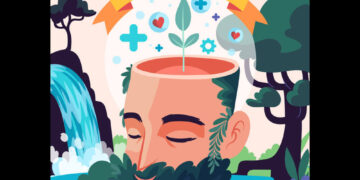In today’s rapidly changing world, academic knowledge alone is not enough to ensure success. Students need a diverse set of skills to navigate the complexities of the modern workplace and society. From critical thinking to adaptability, here are 10 essential skills every student should develop to thrive in their future endeavors.
1. Critical Thinking:
Critical thinking involves analyzing information objectively, evaluating its credibility, and making informed decisions. Students who can think critically are better equipped to solve problems, understand complex issues, and make sound judgments in various situations.
2. Communication Skills:
Effective communication is crucial in both personal and professional contexts. Students should learn how to articulate their thoughts clearly, listen actively, and convey their ideas persuasively through written and verbal communication.
3. Collaboration:
Collaboration is the ability to work effectively with others towards a common goal. Students should develop skills such as teamwork, compromise, and conflict resolution to succeed in group settings and foster productive relationships with peers and colleagues.
4. Creativity:
Creativity involves thinking outside the box, generating innovative ideas, and finding novel solutions to challenges. Encouraging students to explore their creativity fosters innovation and prepares them to adapt to changing circumstances in their future careers.
5. Adaptability:
The ability to adapt to new situations and environments is essential in today’s dynamic world. Students should learn to embrace change, be open-minded, and quickly adjust their strategies and perspectives when faced with unexpected challenges.
6. Emotional Intelligence:
Emotional intelligence encompasses self-awareness, self-regulation, empathy, and social skills. Students who possess emotional intelligence are better able to manage their emotions, navigate social interactions, and build meaningful connections with others.
7. Problem-Solving:
Problem-solving skills involve identifying issues, analyzing root causes, and implementing effective solutions. Students should develop a systematic approach to problem-solving, incorporating creativity, critical thinking, and collaboration to address complex challenges.
8. Digital Literacy:
In an increasingly digital world, students must be proficient in using technology for learning, communication, and productivity. Digital literacy encompasses skills such as information literacy, media literacy, and cybersecurity awareness, enabling students to navigate the digital landscape responsibly and effectively.
9. Financial Literacy:
Financial literacy is the ability to manage money wisely, make informed financial decisions, and understand economic concepts. Students should learn basic financial skills such as budgeting, saving, investing, and debt management to achieve financial independence and security.
10. Lifelong Learning:
Lifelong learning is the mindset of continuously seeking new knowledge, skills, and experiences throughout one’s life. Students should cultivate a passion for learning, develop curiosity, and embrace opportunities for personal and professional growth beyond the classroom.
Conclusion:
As educators, parents, and society at large, it’s our responsibility to equip students with the essential skills they need to succeed in an ever-changing world. By fostering critical thinking, communication, collaboration, creativity, adaptability, emotional intelligence, problem-solving, digital literacy, financial literacy, and a lifelong love of learning, we can empower students to thrive academically, professionally, and personally. These skills serve as the foundation for a bright and promising future, enabling students to navigate challenges, seize opportunities, and make meaningful contributions to society.




